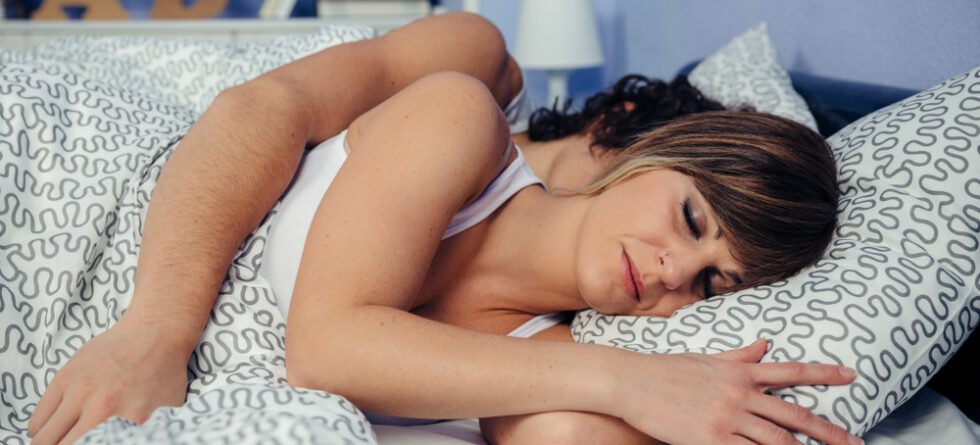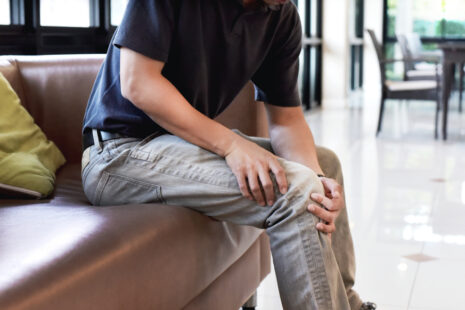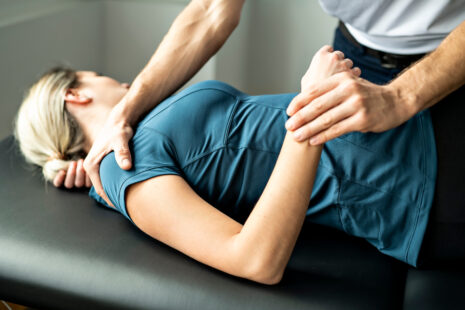To avoid hip pain while sleeping, it’s vital to maintain a sleep position that supports the natural alignment of your hips and spine.
Here are some tips for sleeping positions that can help alleviate or prevent hip pain
- Sleep on Your Side (Preferred Position) – Sleeping on your side can be a good choice for many people, especially if you place a pillow between your knees. This helps keep your hips and spine aligned and reduces pressure on the hip joints. Opt for a soft and supportive pillow that keeps your head and neck in a neutral position.
- Fetal Position – If you sleep on your side, consider curling up slightly into the fetal position by bringing your knees towards your chest. This position can help reduce strain on the hip joints.
- Avoid Sleeping on Your Stomach – Sleeping on your stomach can put stress on the lower back and hips, leading to discomfort. If you are used to sleeping on your stomach, try transitioning to a side-sleeping position.
- Back Sleeping with Pillow Support – If you prefer sleeping on your back, place a pillow or rolled-up towel under your knees to maintain the natural curve of your lower back and reduce pressure on your hips.
- Choose a Supportive Mattress and Pillow – A mattress that is too soft or too firm may not provide adequate support for your hips. Look for a medium-firm mattress that contours to your body’s natural shape. Similarly, use a pillow that keeps your head and neck in line with your spine.
- Maintain Good Posture Throughout the Day – Proper posture during daily activities can also influence how you feel during sleep. Avoid prolonged sitting and maintain good posture while standing, walking, and lifting to reduce strain on your hips.
- Use Additional Support – If you find it difficult to maintain a comfortable sleep position, consider using additional supports, such as a body pillow or wedge pillow, to help position your body more comfortably.
- Avoid Crossing Legs Before Bed – Before going to bed, avoid sitting or crossing your legs for an extended period, as this can contribute to hip discomfort during sleep.
It’s crucial to keep in mind that individual preferences and body types vary, so the best sleep position for avoiding hip pain may differ from person to person. If you have chronic or severe hip pain, it’s recommended to consult with a healthcare professional or a physical therapist to determine the underlying cause of the pain and receive personalized advice for improving your sleep posture and overall hip health.




